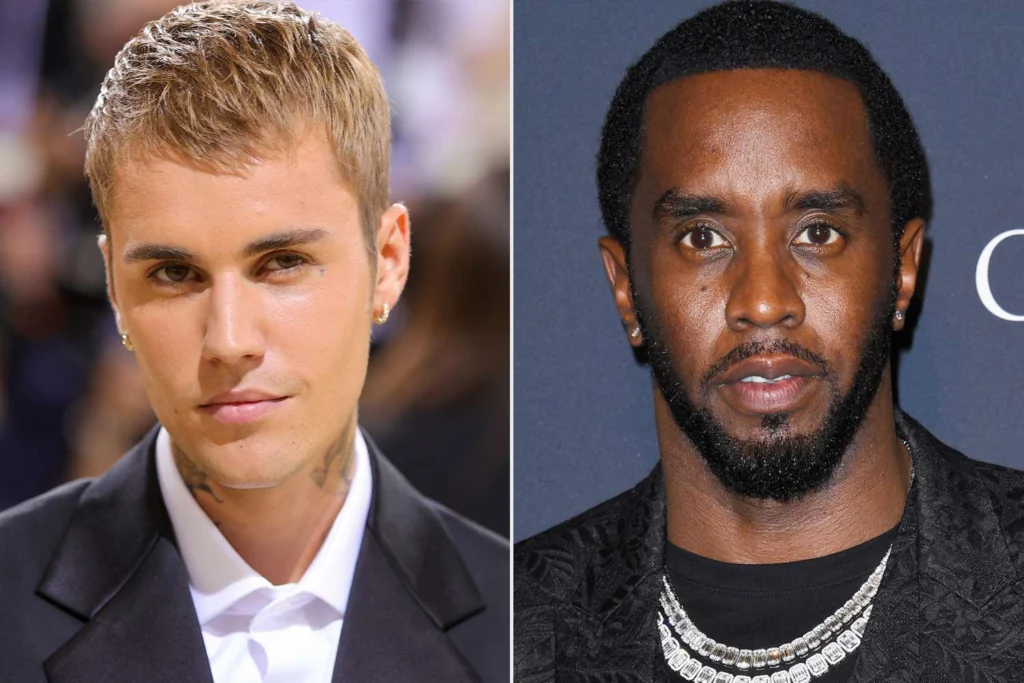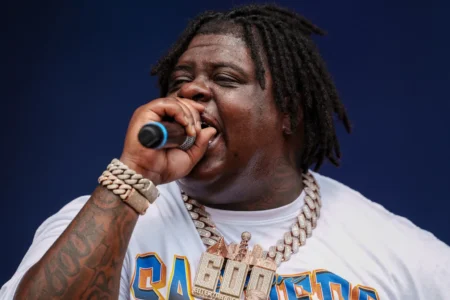In recent days, the internet has been flooded with speculation surrounding Justin Bieber’s interactions with music mogul Sean “Diddy” Combs during Bieber’s early teenage years. The renewed interest follows a wave of legal scrutiny and resurfaced video clips that have sparked online debates about the nature of Bieber and Diddy’s past relationship. However, multiple sources close to the pop superstar are stepping forward to set the record straight.
What Sparked the Controversy?
The storm began brewing after several social media users circulated old footage from Justin Bieber’s teenage years, focusing specifically on his interactions with Diddy. These clips, some dating back to 2009 and 2011, featured a 15-year-old Bieber hanging out with the hip-hop mogul in various settings, including late-night talk shows and social media videos.
One video that resurfaced was from Jimmy Kimmel Live! in 2011, where Diddy made a cryptic comment that raised eyebrows. Sitting alongside a young Justin, Diddy said, “He knows better than to be talking about things that he does with Big Brother Puff on national television.” The comment, now viewed through the lens of Diddy’s ongoing legal troubles, triggered fresh suspicions and viral speculation.
Another clip from 2009 showed Diddy telling Bieber, “As soon as you turn 16, I’m gonna let you rock this car.” He then added, “For the next 48 hours, he’s with me and we’re gonna go buck full crazy,” without providing much context. While the statement might have once been dismissed as typical celebrity showmanship, it has now become a point of concern for critics.
Insiders Speak Out: “Nothing Inappropriate Happened”
Despite the swirling rumors, multiple sources deeply embedded in Justin Bieber’s life—both past and present—have come forward to firmly deny any claims of abuse or misconduct. These insiders, some of whom have been with Justin since his early rise to fame, insist that Diddy never sexually or otherwise abused the pop singer.
According to TMZ, which first broke the response, these appearances and comments were entirely “performative,” carefully staged for the cameras as part of Diddy’s mentor-like public image and Bieber’s rise to stardom.
“They were just celebrity moments, not private ones,” one insider said. “Justin was friends with Diddy’s sons—Quincy and Justin Combs—not personally close to Diddy himself.”
A Statement from Justin Bieber’s Team
Amid the escalating rumors, Justin Bieber’s representatives released a public statement addressing the situation directly:
“Although Justin is not among Sean Combs’ victims, there are individuals who were genuinely harmed by him. Shifting focus away from this reality detracts from the justice these victims rightfully deserve.”
The message strikes a balance—firmly distancing Justin from the controversy while showing empathy and support for those who have come forward with allegations against Combs.
Diddy Under the Microscope
The recent speculation comes as Diddy is facing multiple lawsuits from alleged victims accusing him of sexual assault, abuse, and other criminal conduct spanning several years. In 2023 and 2024 alone, the Bad Boy Records founder was hit with numerous legal claims, some involving serious allegations of trafficking, coercion, and physical abuse.
While none of these lawsuits currently name Justin Bieber, the revisiting of old interactions between the two has been fueled by a growing public appetite for accountability and justice in the entertainment industry.
Pop Culture’s Reckoning with Celebrity Past
The Diddy-Bieber discussion reflects a broader movement in pop culture to re-evaluate past celebrity relationships, especially those involving minors and powerful adults in the industry. With the rise of the #MeToo and #SurvivingHollywood movements, the public has become more critical of what once passed as harmless mentorship or friendship.
Social media has played a central role in this cultural reexamination. Short clips, taken out of context, can rapidly go viral, and public opinion can shift swiftly. In this case, the internet’s reaction has been divided—some believe the past interactions warrant concern, while others argue that the evidence does not support any wrongdoing involving Bieber.
Justin Bieber’s Hollywood Journey
Justin Bieber burst onto the music scene in 2009 after being discovered by Scooter Braun on YouTube. He quickly rose to international stardom with hits like “Baby” and “One Time.” At just 15, he was thrown into the spotlight, surrounded by some of the industry’s most influential figures—including Usher, Ludacris, and yes, Diddy.
While the mentorship from established artists was often viewed as a rite of passage in the music world, it’s now being reinterpreted with a more critical lens. Still, those closest to Bieber insist that his early Hollywood relationships were more symbolic than substantive.
Public Response and Social Media Reaction
As news of the denial spread, fans and commentators took to social media to express a mix of relief, skepticism, and support.
- “I’m glad Justin is okay, but the whole situation still feels weird,” one Twitter user wrote.
- “It’s good to see Bieber’s team standing up and speaking facts instead of letting rumors spread,” another posted.
Trending hashtags such as #JusticeForVictims, #DiddyAllegations, and #BieberSpeaksOut have dominated timelines, proving once again how rapidly celebrity news can evolve in the digital age.
Conclusion: Clearing the Air Amid the Chaos
While the internet continues to dissect every moment from Justin Bieber’s adolescence, those who know him best are urging the public to separate innuendo from fact. According to sources and Bieber’s own team, no abuse occurred, and the publicized relationship between him and Diddy was more of a media construct than a personal connection.
As legal cases against Sean Combs progress, and more details emerge, the public eye will undoubtedly remain fixated on his past relationships—not only with alleged victims but also with high-profile figures like Justin Bieber. But for now, Bieber’s inner circle has drawn a firm line: speculation is not evidence, and shifting the focus from verified survivors to viral conspiracies does a disservice to those who need justice most.







